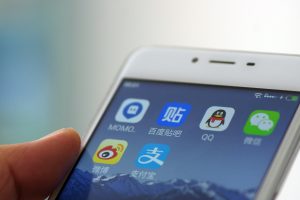Shortly after Lai Ching-te, the Democratic Progressive Party (DPP) candidate, won Taiwan’s widely watched presidential election on January 13, the spokesperson for Beijing’s Taiwan Affairs Office said in a statement, “The results of this election in the Taiwan region show that the DPP does not represent mainstream public opinion.”
Lai had captured 40 percent of the vote in a three-way race, finishing about seven points ahead of his nearest rival.
The official statement was posted by Toutiao, a popular news outlet on the Chinese social media platform Weibo, and quickly attracted mockery from numerous Chinese netizens.
“Oh my god… Can you stop lying to yourself?”
“So getting elected by one-person, one-vote doesn’t represent mainstream public opinion. Is what comes out of your mouth still human language?”
“Understood, as long as it is not 100 percent, it doesn’t represent the mainstream.”
Within minutes, the comments section of the post was closed.
Such swift and massive censorship on Chinese social media was to be expected, as Taiwan-related politics is one of the most sensitive topics in China. The Chinese Communist Party (CCP) regime claims Taiwan as part of its territory – a dubious assertion in terms of both historical fact and international law – while residents of the self-governing island increasingly see themselves as a distinct people.
What was surprising was the number of dissenting comments that Chinese netizens still managed to post.
Criticizing the Chinese government on the internet can have dire consequences. Potential penalties include account suspension, police harassment, or even years of imprisonment. Freedom House’s Freedom on the Net 2023 report ranked China as having the world’s worst environment for internet freedom for the ninth straight year. In 2020, a man in Jiangsu Province was sentenced to two years in prison for “supporting Taiwan independence” and making other critical comments in online chat groups. Yet many Chinese still chose to defy the party line to voice their thoughts on Taiwan’s election.
“Elections by one-person, one-vote don’t represent mainstream public opinion, but the hand-raising machines in the People’s Congress do,” a Chinese social media user quipped. The term “hand-raising machines” refers to members of China’s rubber-stamp parliament, who elected Xi Jinping to the state presidency by a vote of 2,952 to 0 in 2023. A moment after this comment was posted, a click on the user’s account prompted the message: “User does not exist.”
“Let today be the last day of this Weibo account,” another netizen wrote after reposting a group of comments mocking the statement from the Taiwan Affairs Office, clearly anticipating the consequences of that action.
It is very hard – and getting harder – to gauge public opinion by observing the Chinese internet. Censorship is enforced with great efficiency. Content that runs counter to official narratives can be scrubbed away in the blink of an eye. News that spreads far and wide can seem like it never happened just hours later. The severe punishment of expression that is critical of the CCP compels people to engage in equally severe self-censorship.
Most Taiwan-related online comments on the night of the election appeared to back the official goal of absorbing the island into the People’s Republic of China, but the amount of content that commended the free and fair election in Taiwan and criticized the lack thereof in China – and was noticed before being deleted – suggests that there could in fact be many in China who support democratic principles or even take a moderate view on Taiwanese autonomy.
Such democratic sentiments may have been strengthened by the grueling experience of Xi’s three-year-long “zero-COVID” policy. The policy’s extremely abusive enforcement measures awakened many Chinese citizens to the disastrous consequences of having no say in how and by whom they are governed.
At a time when the CCP’s influence abroad is one of the most urgent policy challenges in Washington and other democratic capitals, it is important to remember the depth of grievance and dissent against CCP rule inside China. Given the chance, many people in the country would choose democracy. Democratic states should take this into account by crafting long-term policies that treat the Chinese people and the CCP as separate entities, and include support for pro-democracy movements in China and the diaspora as a key priority. Democracy in China needs all the help it can get.
On the same day Taiwan elected its next president, Weibo hosted Weibo Night, an annual entertainment award ceremony. The social media platform selected pop stars Zhu Yilong and Yang Zi as its “Weibo King” and “Weibo Queen” of the year.
“Each side does its own election,” one netizen wrote. The comment had an air of helpless resignation. And to no one’s surprise, it later disappeared.

































